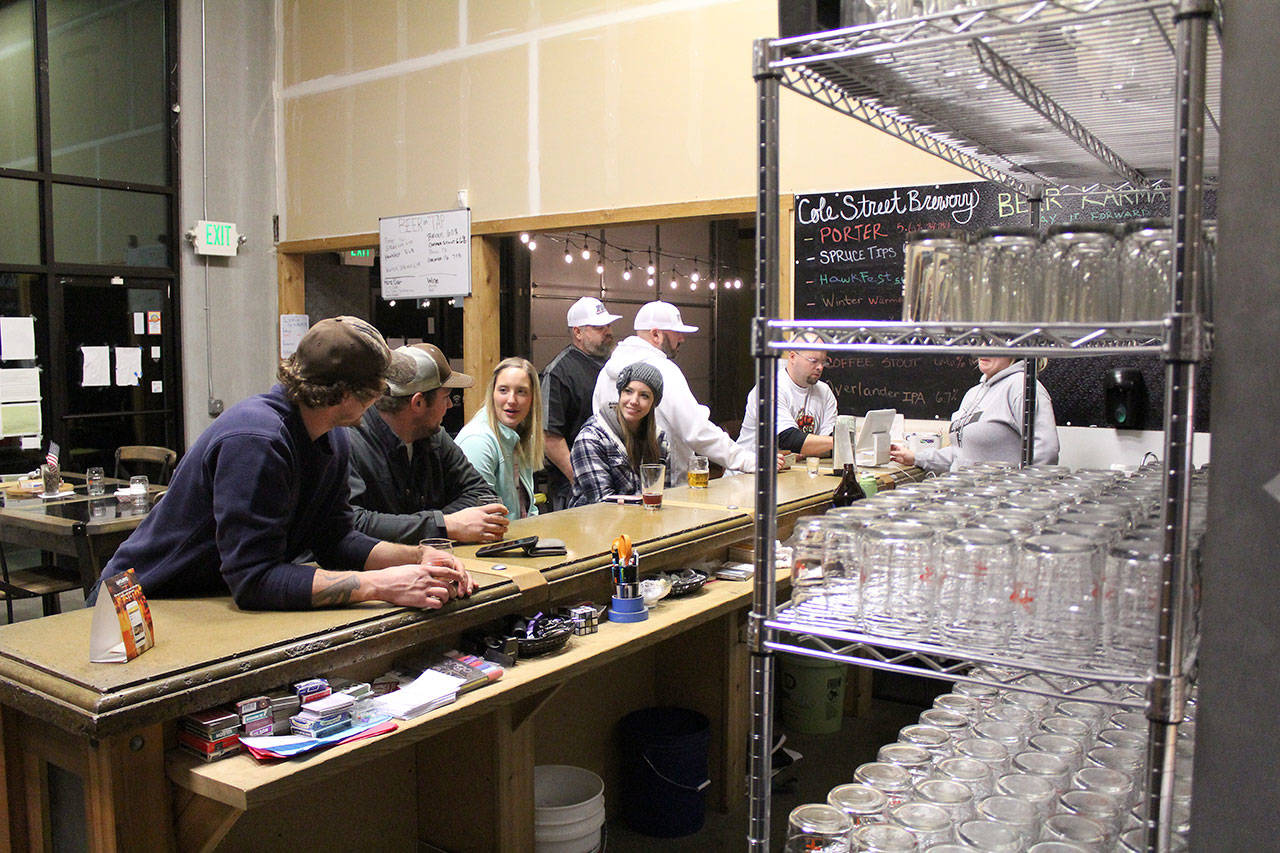While Democrats and Republicans continue to argue over the benefits and detriments of the Republicans recently passed and signed tax overhaul, there’s at least one group of local businesses owners who are likely to raise a pint to the sweeping tax changes — small breweries.
Inside the tax bill is the Craft Beverage Modernization and Tax Reform Act, which reduces the federal excise tax on alcoholic drinks based on how many barrels are brewed annually.
Large brewers, or those who have a barrelage of over six million a year, are unaffected by the change, and the excise tax remains at $18 a barrel.
But small breweries, like Cole Street Brewery and Rockridge Cidery in Enumclaw, Elk Head Brewery in Buckley and Geaux Brewing in Auburn, get their federal excise tax cut from $7 a barrel to $3.50 a barrel for the first 60,000 barrels of beverages they sell, so long as they brew under 2 million barrels a year.
According to Bob Pease, the president and CEO of the Brewers Association, this excise tax cut would save small breweries (domestic brewers that produce less than six million barrels annually) more than $80 million a year, and all brewers more than $142 million annually, which will allow, “America’s small brewers — who are manufacturers and entrepreneurs — to reinvest in their businesses, expand their operations, and hire more workers,” he wrote in a recent Brewers Association article.
The Brewers Association attempted to get the Craft Beverage Modernization and Tax Reform Act through Congress back in 2015, but the act failed to get a vote in the last session.
However, the tax break may not be enough to help local breweries in Washington due to changing minimum wage laws.
According to Eric Brandjes, co-owner of Cole St. Brewery, the brewery produces about 250 barrels a year, and expects around $875 in annual savings due to the tax break.
“This will get entirely wiped out by the 50 cent increase in the minimum wage,” Brandjes said, referring to the 2016 voter-approved Initiative 1433, which boosted the state’s minimum wage up to $11 in 2017, and further raising it to $11.50 on Jan. 1, 2018.
The initiative will keep raising minimum wage to $13.50 by 2020.
“The biggest challenge over the next two years will be the increase of minimum wage to $13.50,” Brandjes said. “Payroll is our biggest expense, as it is with most small businesses, and as payroll goes up so do all of the payroll taxes (both federal and state) so our tax burden goes up as well.”
Additionally, the initiative requires all employers to offer paid sick leave to workers in 2018, putting another potential financial strain on businesses like Brandjes’.
The brewer also noted only the federal excise tax changed, and Washington’s beer tax remains at $4.78 per barrel.
“In general most small breweries (100 to 5000 barrels per year) are barely making ends meet in the current market, so any savings will go to debt service or, if they are lucky, owners or shareholders may see an actual return on investment,” Brandjes said. “I think the tax breaks will help the larger breweries more than the small guys. Every dollar helps, but it’s not really a game changer for the little guys.”


